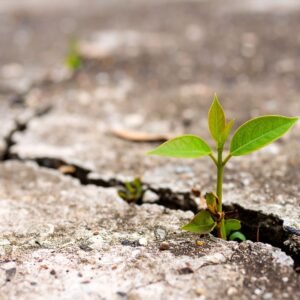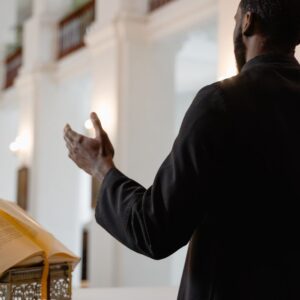Pastors, and all other types of Clergy are not immune to human problems
We are early in the new year, both in the calendar and liturgically. With Epiphany, we conclude the Christmas season in which we celebrated the birth of Jesus, the arrival of Emmanuel, the Incarnation of God. The divine force that creates, includes, and transcends all of creation, all of the universe, became human, with all the fleshy, physical, vulnerable components that being human entails. In Jesus, God is made vulnerable to the aches, sufferings, and, yes, death that constitute human life.
So it’s perhaps a fitting time to remember that we pastors, too, share in this humanity: full of divine purpose and agency, yes, and at the same time susceptible to the limitations, constraints, and vulnerabilities of being human.
Too often, pastors and clergy are placed on pedestals.
Considered “closer to God” or somehow “holier” because of our role in the community and our training. Yes, we dedicated our careers to spiritual life and practice (though that, too, as many will attest, is sometimes surpassed by devoted laypeople), but we are no more God-like. We may hold Masters of Divinity, but we have not mastered divine living.
We are human — as human as Jesus in the manger, and just as susceptible to all the hardships that the human condition entails.
Perhaps this year especially it is important to name some of the more challenging aspects of the human condition: loneliness, fatigue, anxiety, depression, post-traumatic stress, self-harm behaviors, burnout, suicidal thoughts, or suicide.
Pastors, stress and trauma
On top of the concerns that each person in the country (and the globe) is susceptible to right now, pastors often have increased exposure to vicarious trauma. Vicarious trauma occurs through repeated hearing or witnessing others’ traumatic experiences. The term was developed when psychologists sought to understand why helping professionals showed symptoms of post-traumatic stress disorder (PTSD) without having been directly exposed to trauma.
Pastors experiencing vicarious trauma may not notice the impact of repeated exposure to traumatic stories until it becomes cumulative, altering their beliefs about the world, humanity, and God. Perhaps you lose trust in humanity, or faith in the goodness of relationships, or hope in the possibility of love. Perhaps God feels far away, or indifferent to such overwhelming need.
For clergy, witnessing others’ traumatic experiences is a part of the job. You are called — not only by God but literally, on the phone — to be present at a death, in the aftermath of loss, when a diagnosis is received, when a relationship ends. The things that bring people to church are often traumatic: disease, divorce, and death. Pastors are often the first to speak to people as their lives are disrupted by the wake of trauma, incarnating the love of the Spirit that holds them through uncertainty and grief.
In addition to what might be considered “normal” amounts of these traumatic events in any given year, COVID-19 has added approximately 374,000 deaths in the United States alone while disrupting the communal grieving practices of congregations. It would be easy to imagine that some clergy may be at or surpassing their threshold for managing trauma.
Add to that the contagion anxieties, the strained relationships, the revelations (mostly for White people) and ongoing work of addressing racial divides, and the added stressors of just about every aspect of life in a pandemic (as well as life during major elections) — all of it raises needs for pastoral care. All of it contributes to pastoral stress. And all of that is happening at the same time that pastors are learning technology skills to get worship and spiritual formation online, while serving as on-call tech-support for some congregants, while managing disparate views on whether, and when, and in what form, and how many people could be or should be gathering.
All to say: It’s a stressful season to be clergy. And we know that prolonged stress is harmful to our bodies, minds, and spirits. It can exacerbate or cause anxiety and depression. It can erode our memories, our self-confidence, our decision-making skills, and our hope.
It is a hard time for any number of activities and roles, and none of that diminishes that it’s a hard time to pastor. I feel I must state this explicitly because pastors are so often the most generous, hospitable, emotionally available, and other-oriented people I’ve had the pleasure and privilege to encounter. Pastors strive to follow the most important commandments — to love God, and to love your neighbor as yourself. Those are beautiful, whole-hearted traits — and also traits that make us more exposed to trauma, and more susceptible to vicarious trauma.
Perhaps the most challenging part of the command to “love our neighbor as ourselves” is that it assumes we know how to love ourselves well.
Moving forward in healing
In a church culture and a role in which “sacrifice” gets praised, some of us may be better at masochism masquerading as love than at actual love of ourselves. And yet loving ourselves is exactly what we need to master in order to be able to love our neighbor fully — to love our neighbor without resentment, without risk of burnout or boundarylessness or mental unhealth.
As action-oriented people, you may be wondering what to do about your stress levels, your vicarious traumas, your risks. The first: Let yourself off the hook. Rather than add one more item to your daily to-do list (“reduce stress”), reflect on what you’re already doing that supports your mental health and overall wellbeing.
- What do you enjoy?
- What parts of your work give you life?
- What activities and relationships give you comfort and joy, in both your work and your play?
- Can you find time to do more of that?
Second, ask yourself what you do that undermines your wellbeing.
- What compels you to continue in that behavior?
- What affirmation, benefit, or narrative of yourself do you “get out of it”?
Perhaps the cost to yourself is worth it to you; if not, perhaps it’s a pattern that can be altered, a habit that can be replaced, or a task that can be handed off (what drains energy for you might bring joy to someone else!).
If you recognize signs of mental unhealth in yourself, do what we advise congregants to do: Reach out. Ask for help.
Usually, we tell our congregants to call us, their pastor. Perhaps you’re fortunate enough to have your own pastor. Or your denomination may have resources, from counseling to retreats to sabbatical funds — ask your denominational leader about what’s available. From a school that weds “theology & psychology,” it should be unsurprising that I recommend a licensed mental health counselor. As we joke around here: you can have Jesus and a therapist, too.
Find a community
Whether you find a therapist or cultivate it personally, regularly engaging a community of support is the single most beneficial thing you can do for your wellbeing. Self-care isn’t enough; it takes a community of care. If possible, find a community that exists outside your work-sphere (your tradition or denomination), as deeper honesty is more accessible when there are no concerns that you might someday be competing for the same job.
None of us will love God or neighbor perfectly all of the time — we know this (we might even preach it). But knowing that we’ll fall short doesn’t keep us from striving to love more wholly and more consistently.
In the same way, none of us will love ourselves perfectly all of the time. We’ll self-sabotage; we’ll use behaviors that undermine our long-term well-being in order to cope with the day. Just as we would reflect on moments we fail to love others well, may we reflect on moments we fail to love ourselves well. May we invite God to catch us when we fall, to help us care for ourselves as God cares for us, and to allow our learnings to grow us into beings more capable of love for ourselves, for others, and for God. (read the Clergy Burnout Report)
National suicide hotline: 1-800-273-8255










0 Comments